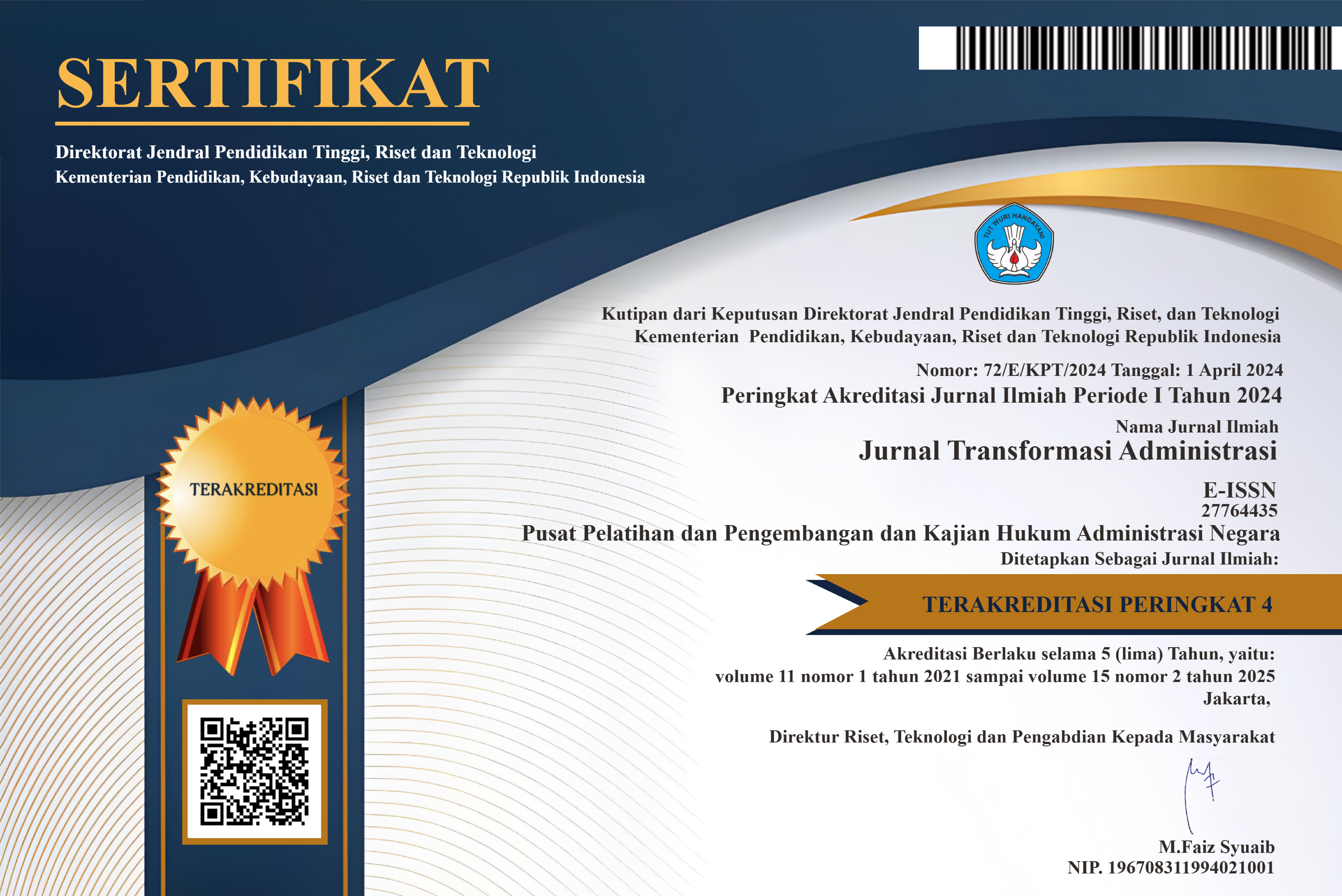Fiscal Desentralisation, Economics Growth And Human Development Index In Sumatera
Keywords:
fiscal desentralisation, economic growth, human developmentAbstract
This study aims to examine the effect of fiscal decentralization and economic growth on human development on Sumatra. The data used are regional tax data that represent fiscal decentralization, economic growth and human development index. The data used in the form of panel data of each province from 2010 to 2016. To test its influence used panel data regression model, after the best model test is a fixed effect model. The results of this study indicate that fiscal decentralization in this case local taxes have a positive and significant influence on human development on Sumatra, while economic growth has a negative but not significant effect on human development on the island of Sumatera.
References
Aslim, E.G. and Neyapti, B. (2017), “Optimal fiscal decentralization: Redistribution and welfare implications”, Economic Modelling, Elsevier, Vol. 61 No. November 2016, pp. 224–234.
Badan Pusat Statistik. (2018), “Indeks Pembangunan Manusia (IPM) Tahun 2017”, Berita Resmi Statistik, available at: https://doi.org/4102002
Bahl, R. (1999), “Implementation Rules For Fiscal Decentralization”, Annals of Economics and Finance.
Boediono, D.R. (1999), “Seri Sinopsis Pengantar Ilmu Ekonomi No. 1 Ekonomi Mikro”, BPFE.
Dewan Perwakilan Rakyat RI. (1999), Undang-Undang No. 22 Tahun 1999 Tentang Pemerintahan Daerah, Local Government, available at: https://doi.org/10.1017/CBO97 81107415324.004
DPR RI. (2009), Pajak Daerah Dan Restribusi Daerah, Undang- Undang, available at: https://doi.org/10.1002/app.446.22
Escaleras, M. and Chiang, E.P. (2017), “Fiscal decentralization and institutional quality on the business environment”, Economics Letters, available at: https://doi.org/10.1016/j.econlet.2017.07.019
Kalirajan, K. and Otsuka, K. (2012), “Fiscal Decentralization and Development Outcomes in India: An Exploratory Analysis”, World Development, available at: https://doi.org/10.1016/j.worlddev.2012.04.005
Kis-Katos, K. and Sjahrir, B.S. (2017), “The impact of fiscal and political decentralization on local public investment in Indonesia”, Journal of Comparative Economics, Vol. 45 No. 2, available at: https://doi.org/10.1016/j.jce.201 7.03.003
Lecuna, A. (2012), “Corruption and size decentralization”, Journal of Applied Economics, available at: https://doi.org/10.1016/S15140326(12)60007-5
Lumbantoruan, E.P. and Hidayat, P. (2013), “Analisis Pertumbuhan Ekonomi dan Indeks Pembangunan Manusia (IPM) Provinsi-Provinsi di Indonesia (Metode Kointegrasi)”, Ekonomi Dan Keuangan.
Mankiw, N.G., Quah, E. and Wilson, P. (2013), “PENGANTAR EKONOMI MAKRO”, PENGANTAR EKONOMI MAKRO, available at: https://doi.org/10.3390/bs30100.01
Mosley, P. (2015), “Fiscal composition and aid effectiveness: A political economy model”, World Development, available at: https://doi.org/10.1016/j.world dev.2013.12.020
Setiawan, M.B. and Hakim, A. (2008), “Indeks Pembangunan Manusia”, Jurnal Economia, available at: https://doi.org/4102002
Soejoto, A. and Subroto, W.T. (2015), “Fiscal Decentralization Policy in Promoting Indonesia Human Development”, International Journal of Economics and Financial Issues.
Song, Y. (2013), “Rising Chinese regional income inequality: The role of fiscal decentralization”, China Economic Review, available at: https://doi.org/10.1016/j.chieco .2013.02.001
Sukirno, S. (2011), Teori Pengantar Ekonomi Makro, Jakarta.
UNDP. (2005), Annual Report, UNDP 2005, available at: https://doi.org/10.1039/C1DT9 0165F
UU Republik Indonesia No 32. (2004), “Undang-Undang Nomor 32 Tahun 2004 Tentang Pemerintah Daerah”, UU No 32 2004, available at: https://doi.org/10.1017/CBO97 81107415324.004
Wang, Z., Danish, Zhang, B. and Wang, B. (2018), “Renewable energy consumption, economic growth and human development index in Pakistan: Evidence form simultaneous equation model”, Journal of Cleaner Production, available at: https://doi.org/10.1016/j.jclepro .2018.02.260
Wu, Y. and Heerink, N. (2016), “Foreign direct investment, fiscal decentralization and land conflicts in China”, China Economic Review, Elsevier B.V., Vol. 38, pp. 92–107.
Yang, Z. (2016), “Tax reform, fiscal decentralization, and regional economic growth: New evidence from China”, Economic Modelling, Elsevier B.V., Vol. 59, pp. 520–528.
Yuliani, T. and Saragih, N. (2014), “Determinan pembangunan manusia di kabupaten/kota provinsi jawa tengah”, Jejak ; Journal of Economic and Policy, available at: https://doi.org/10.15294/jejak.v7i1.3843
Yushkov, A. (2014), Fiscal Decentralization and Regional Economic Growth: The Case of the Russian Federation, SSRN, available at: https://doi.org/10.2139/ssrn.25.18319
Zhang, K., Zhang, Z.Y. and Liang, Q.M. (2017), “An empirical analysis of the green paradox in China: From the perspective of fiscal decentralization”, Energy Policy, Elsevier, Vol. 103 No. March 2016, pp. 203–211.















